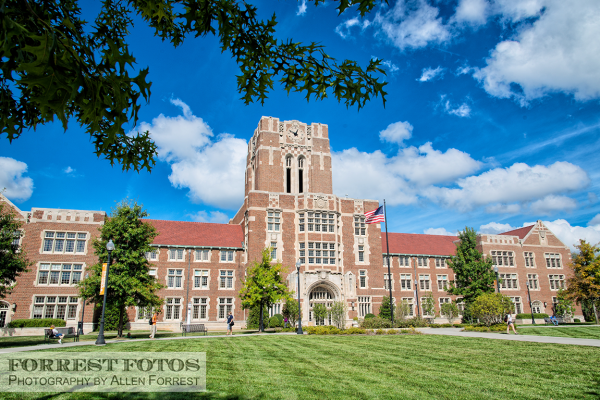Focus on Tennessee, not Just Peyton Manning
Many universities are under investigation for Title IX violations. (PHOTO COURTESY OF ALLEN FORREST VIA FLICKR)
March 10, 2016
In 1996, Peyton Manning was accused of sexually assaulting a female trainer while he was attending the University of Tennessee (UT). The trainer, Jamie Naughright, alleged Manning of placing his genitalia on her while she was examining his foot. Manning said he actually pulled down his pants to moon another male student-athlete who had entered the room. Though Manning was not formally charged, a sexual harassment lawsuit against the school, which cited Manning, resulted in a $300,000 settlement for Naughright. In that case, she made 33 claims against athletes, trainers, coaches and administrators at the University of Tennessee, with at least four of those claims being confirmed in an investigation by school officials.
20 years later, Tennessee and college campuses across America still have hostile sexual environments. Recently, six women filed a 64-page Title IX lawsuit against Tennessee, alleging that the school’s present, unsafe environment was created through a policy of indifference toward sexual assaults by student-athletes. In the ongoing case, the women argue that this can be attributed to universities favoring their athletes, as they generate money for the schools. Manning is mentioned in the case, but should not be the sole focus of media attention.
The media should be focused on the five cases of alleged sexual assault by student-athletes between 2013 and 2015 that are outlined in the lawsuit. The attention should be directed towards the violations of Title IX, which in part sets guidelines for how institutions should handle sexual assault complaints. This should not only be about the high-profile athletes, but about how a prominent university created an unsafe setting for women.
Two of the five cases of alleged sexual assaults mentioned in the lawsuit have resulted in charges being filed. Former Tennessee football players A.J. Johnson and Michael Williams will go to trial on June 27 and July 18, respectively, for aggravated rape charges brought up by one UT student for an alleged attack that occured in November 2014.
That woman’s case in particular can attest to the hostile situation created by the University. Another player on the football team, Drae Bowles, assisted the female UT student by bringing her to the hospital and supporting her decision to report the incident. Bowles was later attacked by teammates and said that he “was punched in the mouth” in a sworn declaration. When Bowles explained what happened to head coach Butch Jones, Jones allegedly told Bowles that he “betrayed the team” by helping the woman. These claims came just one day after University of Tennessee softball co-coach Karen Weekly said, “the culture here right now is the best it’s ever been.”
If this is the best that the culture for women at UT has ever been, then drastic changes need to be made. It is unacceptable to have an entire system that fails to address the sexual misconduct that is occurring in these Title IX cases. The University of Tennessee has been deliberately apathetic to claims of sexual assault dating back to Peyton Manning’s day in Knoxville, but that doesn’t mean the focus should be on him. It’s time to stop focusing on the star and begin looking at the hostility that women face on campuses, not only at UT but at universities across America.
While Tennessee is currently the center of attention due to the amount of details released and the star power involved, it is far from being the only university with a problem. According to the United States Department of Education’s Office for Civil Rights, there are 167 schools with pending Title IX investigations related to sexual violence as of last week. This is representative of a system that continues to fail one gender, favoring the money generated by student-athletes over the health and safety of its female population.









